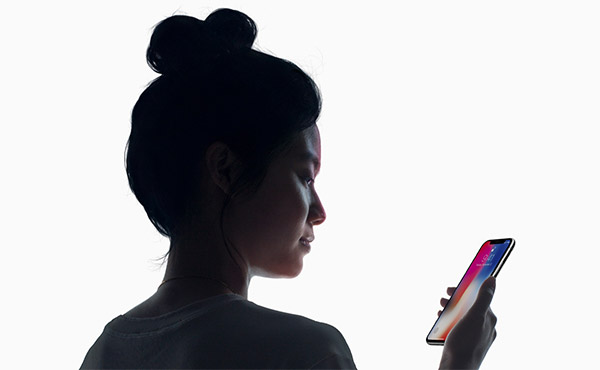Now that the iPhone X is in the hands of select few, we are starting to see more and more of our questions answered.
Many of those questions revolve around the move away from Touch ID and towards Face ID as a means of quick and secure device authentication, and when it comes to technical head-to-head speed, it would seem that the Touch ID 2.0 sensor is faster, but it’s not as simple as that. Let us explain why.

See, in one of the tests, it is shown that when based purely on the time it takes to go from locked device to an unlocked, Touch ID edges past Face ID, although not by a huge margin unless unlocking an iPhone in the blink of an eye is the kind of thing your life depends on. During the same test with stopwatch in hand, it took 1.2 seconds to unlock the iPhone X from pressing the side button on the side of the device and an additional 0.4 seconds to swipe up to get to a usable screen. Performing the equivalent actions on an iPhone 7 Plus using Touch ID took 0.91 seconds.
I’ve been using Face ID on the iPhone X for more than 24 hours, and I don’t need a stopwatch to tell you that it unlocks my phone slower than when I was using Touch ID on my older iPhone 7 Plus. I used a stopwatch app anyway to prove my point.
The problem with this kind of test is that it treats Face ID as an extra step when it shouldn’t. Instead of going through the process of clicking the side button first for waking the display, then waiting for Face ID to authenticate, and then using swipe up gesture to unlock, all you need to do is to think that Face ID isn’t even there and do a swipe gesture as soon as the screen wakes up automatically with raise-to-wake functionary, or manually by tapping on the screen, as also explained by John Gruber:
Starting with a tap of the side button is not how you’re supposed to do it — you’re creating a two-step process where you only need one.
If raise-to-wake kicks in and turns on the display, all you need to do is swipe up from the bottom. Don’t wait for the lock icon to change — don’t even worry about it. Just swipe up. If raise-to-wake hasn’t kicked in, and you’re holding your iPhone X in your hand with the display off, just tap the screen near the bottom and immediately swipe up. The best way to use Face ID is to pretend it isn’t even there, and just swipe up from the home indicator.
This is illustrated by a side-by-side comparison of iPhone with Touch ID 2.0 sensor Vs Face ID 1.0 on iPhone X:

Matthew Panzarino also points out that Face ID might actually be faster than Touch ID when it comes to using the tech to perform actions on day-to-day basis, such as interacting with notifications, for example, using a video to demonstrate what he means.
Here. Let me show you in a video what I mean that Face ID in use is different than Face ID artificially clocked. pic.twitter.com/1jvU2f5vC2
— Matthew Panzarino (@panzer) November 1, 2017
So what do you guys think? Is Face ID more faster and convenient than Touch ID? Sound off in the comments below.
(Source: Tom’s Guide, Reddit, Matthew Panzarino [Twitter], Daring Fireball)
You may also like to check out:
- Download Official iPhone X Wallpapers Pack For Any iPhone Ahead Of Release
- Download: Pokemon Go 1.51.1 For iOS, 0.81.1 APK For Android Rolling Out
- Download: iOS 11.2 Public Beta 1 Now Available For Testers
- Downgrade iOS 11.1 To iOS 10.3.3 Still Works On iPhone 6s
- Download iOS 11.1 IPSW Links And OTA Update Of Final Version
- Downgrade iOS 11 / 11.1 On iPhone Or iPad [How-To Guide]
- Download iOS 11, 11.1, 11.0.3 Links & Install On iPhone X, 8, 7 Plus, 6s, 6, SE, iPad, iPod [Tutorial]
- Jailbreak iOS 11 / 11.1 / 11.0.3 On iPhone And iPad [Status Update]
You can follow us on Twitter, add us to your circle on Google+ or like our Facebook page to keep yourself updated on all the latest from Microsoft, Google, Apple and the Web.

